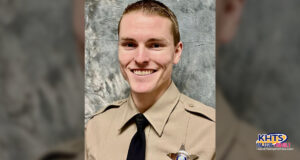Senator Scott Wilk, R-Santa Clarita, announced Wednesday he introduced a bill that would increase California’s animal blood donor supply after a previous bill was vetoed for not going “far enough,” officials said.
Senate Bill 1115 (SB 1115) would allow for community-based animal blood donations, according to Wilk’s office.
This change could save pets’ lives, as California’s current system allows for only two closed-colony blood banks, a system so restrictive it has resulted in a critical shortage of animal blood for pets in need, according to the lawmaker.
Wilk plans to continue working with Social Compassion in Legislation (SCIL), a leading animal welfare advocacy organization, and other animal welfare groups to bring SB 1115 to fruition. The bill reportedly aims to also bring additional transparency and oversight to animal blood banks in California.
“Pets die every day simply because there is not enough animal blood in the system. With SB 1115 we have an opportunity to save pets’ lives by ensuring a more robust supply of blood and phase out the current system of caging blood donor animals,” said Wilk. “SB 1115 will allow for community-based blood donations, which means healthy animals, under the supervision of a veterinarian, can donate blood and then, like their human blood donor counterparts, go home to their families when done.”
Ambiguity in existing law has led to a relatively limited regulatory scheme for animal blood banks – leading the California Department of Food and Agriculture (CDFA) only to approve commercial licensure for closed-colony banks, which house dogs and cats for the specific purpose of taking their blood.
“Animals kept in captive-closed colonies, the main source of animal blood, are housed in cages for up to 23 hours a day and deprived of companionship, stimulation and exercise,” said Judie Mancuso, founder and CEO of SCIL. “Most animal guardians would be appalled if they knew these circumstances and would gladly have their dogs give blood if it freed other poor dogs kept in captivity and totally deprived of a normal loving home.”
Forty-nine other states already allow for the more humane community-based blood banks, and this bill would bring California in line with the rest of the nation, according to officials.
In 2019, Senator Wilk authored Senate Bill 202, a similar measure that was vetoed by Governor Gavin Newsom despite receiving unanimous support in the legislature.
In his veto message, the governor stated he was “supportive of changing California’s law governing animal blood donation,” but SB 202 did not go “far enough.”
See Related: Senator Scott Wilk’s Animal Blood Donor Bill Heading To Governor For Approval
SB 1115 would change current law and allow pet owners to volunteer their pets to give transfusions to animals in need. It would require veterinarians to supervise community blood banks for animals, mandate testing for disease in all donors and make most records related to commercial blood banks available to the public. The bill would also trigger the phase-out of cage-based, closed-colony blood banks.
“I have been working with stakeholders to address the governor’s concerns when he vetoed my legislation last year. In his veto message he stated that it did not go ‘far enough’ to ensure the safe and humane treatment of donor animals,” said Wilk. “We can all agree that the safety and humane treatment of donor animals is critical and that adequate oversight and enforcement are in place to meet these goals, so I am optimistic we will find common ground as we continue our dialogue.”
Sponsored Articles
KHTS FM 98.1 and AM 1220 is Santa Clarita’s only local radio station. KHTS mixes in a combination of news, traffic, sports, and features along with your favorite adult contemporary hits. Santa Clarita news and features are delivered throughout the day over our airwaves, on our website and through a variety of social media platforms. Our KHTS national award-winning daily news briefs are now read daily by 34,000+ residents. A vibrant member of the Santa Clarita community, the KHTS broadcast signal reaches all of the Santa Clarita Valley and parts of the high desert communities located in the Antelope Valley. The station streams its talk shows over the web, reaching a potentially worldwide audience. Follow @KHTSRadio on Facebook, Twitter, and Instagram.

 KHTS Radio Santa Clarita Radio – Santa Clarita News
KHTS Radio Santa Clarita Radio – Santa Clarita News




